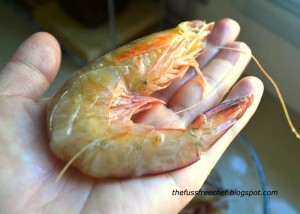Cholera-dusted prawns, peanuts with a side of pesticide, salmonella-infused chilli powder and E. coli and listeria-flavored cheeses have been stopped en route to supermarket shelves this year.
The Sydney Morning Herald reports the Australian Quarantine and Inspection Service rejected almost 350 shipments of food up to October 30 for failing to meet chemical and bacterial standards, including four shipments of cooked prawns from China and Thailand  blocked because of the presence of cholera bacteria.
blocked because of the presence of cholera bacteria.
Chlorpyrifos, a pesticide linked to neurological defects and developmental and autoimmune disorders, was found in peanuts imported from China on six occasions.
The Australian Pesticides and Veterinary Medicines Authority began a review of chlorpyrifos because of concerns over its toxicity and potential risks, but a final report is still awaited.
The pesticide has been banned from use in US homes since 2001.
Ethylene chlorohydrin, detected in chilli powder, cinnamon sticks and ”garam masala” powder from India in August, can cause nausea, vomiting, blurred vision, headaches, low blood pressure, collapse, shock and coma.
The Australian National University public health and infection expert Martyn Kirk said the impact on people would depend on the amount of the bacteria or chemical consumed. ”You need quite a high dose of cholera to get infected,” Dr Kirk said.
Produce from India was rejected 49 times in the first 10 months of this year while China and Italy both had 32 products banned.
French cheeses were not up to standard on 43 occasions.
Gabrielle Cooper, a professor of pharmacy at the University of Canberra, said the presence of listeria bacteria in more than 30 products, including oysters from China, Roquefort cheese from France, smoked salmon from Ireland and ham from Italy, should serve as a reminder for pregnant women to stay away from seafood, soft cheeses and deli meat.
 The hope is that this boosted fine will serve as an effective deterrent to food importers who may consider ignoring Australia’s strict food safety regulations. B&E Packaging has already been slapped with the increased fine, after they admitted to selling 1,500kg of cooked prawns obtained from Vietnam, without performing the required food safety tests.
The hope is that this boosted fine will serve as an effective deterrent to food importers who may consider ignoring Australia’s strict food safety regulations. B&E Packaging has already been slapped with the increased fine, after they admitted to selling 1,500kg of cooked prawns obtained from Vietnam, without performing the required food safety tests.
